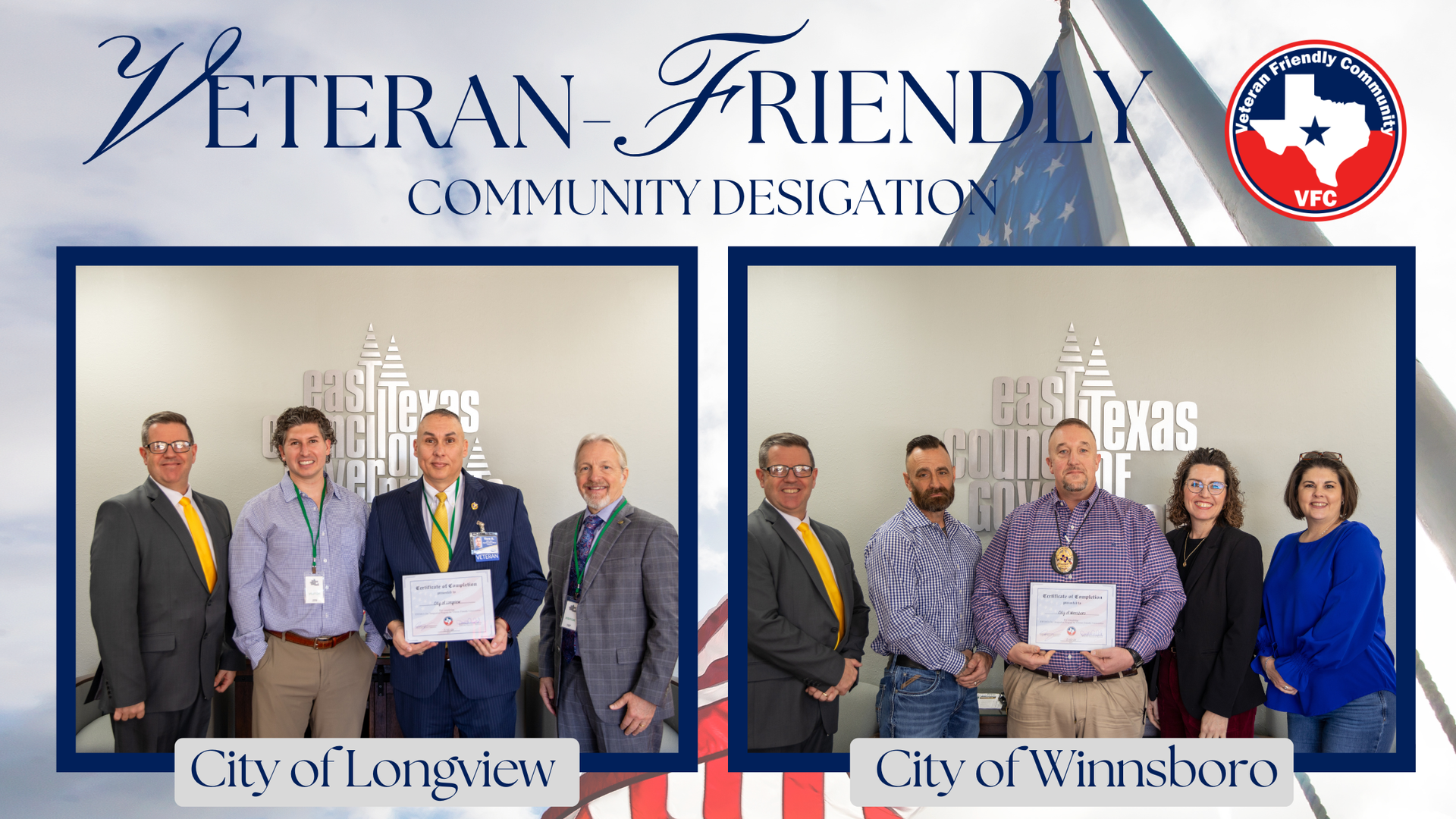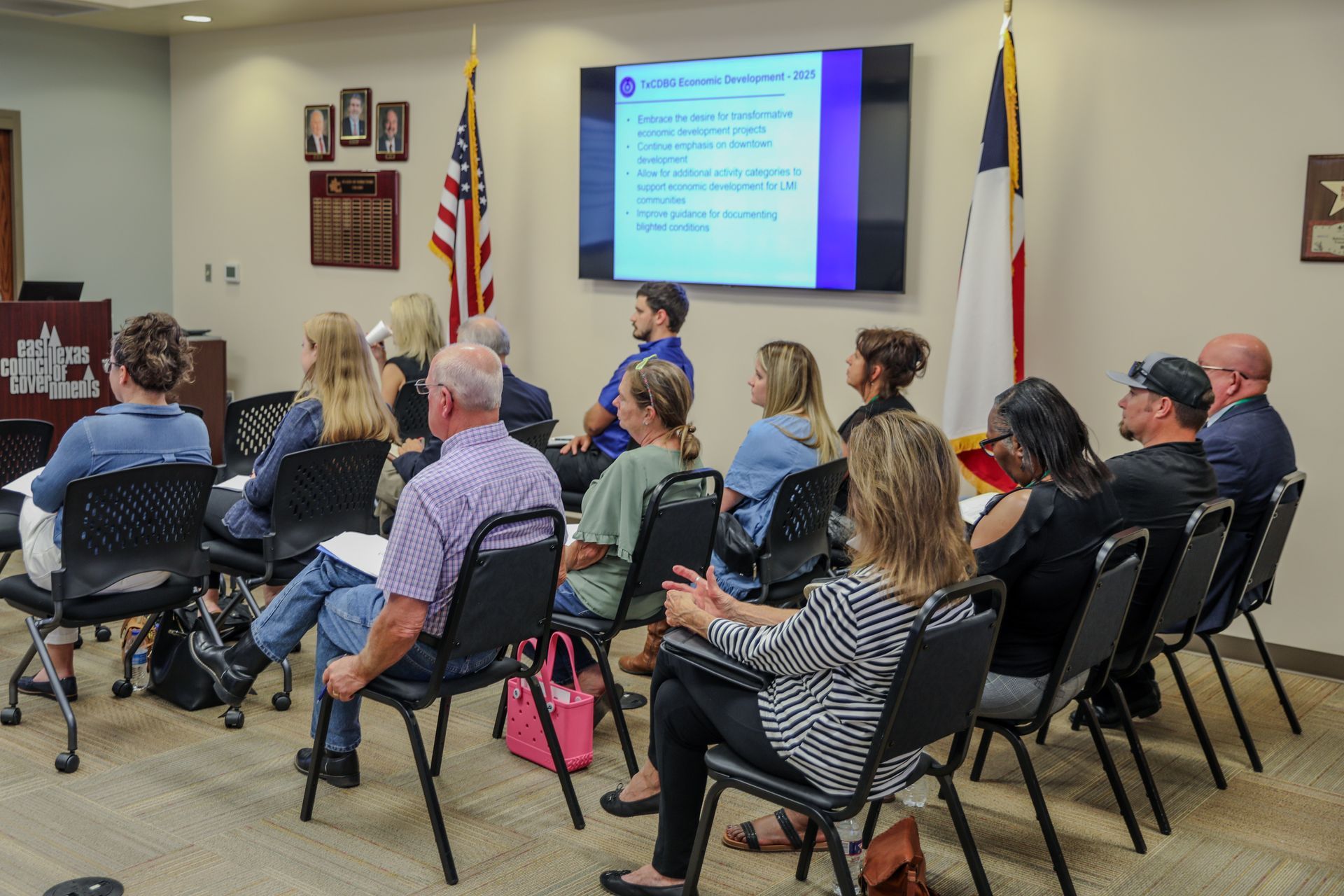Governor Abbott Announces Phase One To Open Texas, Establishes Statewide Minimum Standard Health Protocols
Office of the Governor, Greg Abbott • April 27, 2020
Creates Statewide Contact Tracing Program
Issues Special Guidance For Texans Over 65, Nursing Homes

Governor Greg Abbott today announced the first phase of the State of Texas' ongoing plan to safely and strategically open Texas while minimizing the spread of COVID-19. Under Phase I, certain services and activities are allowed to open with limited occupancy, and the Texas Department of State Health Services (DSHS) is issuing minimum standard health protocols for all businesses and individuals to follow. The Governor also outlined special guidance for Texans over 65 and detailed a comprehensive mitigation plan for nursing homes in Texas. The Governor also announced a statewide testing and tracing program developed by DSHS that will help public health officials quickly identify and test Texans who contract COVID-19 and mitigate further spread of the virus.
The Governor's announcement is accompanied by Texans Helping Texans: The Governor's Report to Open Texas. This detailed report, available on the strike force website, helps Texans understand phase one by outlining the new protocols, guidance, and recommendations. The report also includes a series of Open Texas Checklists that outline DSHS' minimum standard health protocols for all Texans.
"This strategic approach to opening the state of Texas prioritizes the health and safety of our communities and follows the guidelines laid out by our team of medical experts," said Governor Abbott. "Now more than ever, Texans must remain committed to safe distancing practices that reduce the spread of COVID-19, and we must continue to rely on doctors and data to provide us with the safest strategies to restore Texans' livelihoods. We must also focus on protecting the most vulnerable Texans from exposure to COVID-19. If we remain focused on protecting the lives of our fellow Texans, we can continue to open the Lone Star State."
By way of Executive Order (GA-18), all retail stores, restaurants, movie theaters, and malls are permitted to reopen on Friday, May 1. These services must limit their capacity to 25% of their listed occupancy. Within shopping malls, the food-court dining areas, play areas, and interactive displays and settings must remain closed.
All museums and libraries may open under the same 25% occupancy limitation, but interactive areas of museums must remain closed. State libraries and museums will open by May 1, and local public museums and libraries may reopen only if permitted by the local government. Single-person offices may reopen as well.
Churches and places of worship remain open. Outdoor sports are allowed to resume so long as no more than four participants are playing together at one time. Certain social distancing practices must also be followed. Local government operations, including county and municipal government operations relating to permitting, recordation, and document-filing services, may reopen as determined by the local government.
DSHS has recommended minimum standard health protocols for all individuals, all employers and employees, as well as industry-specific protocols for retailers, retail customers, restaurants, restaurant patrons, movie theaters, movie theater customers, museums and libraries, museum and library visitors, outdoor sports participants, single-person offices, and low COVID-19 counties. These protocols are outlined in the Open Texas Checklists within the Governor's report beginning on page 20.
Essential services such as farmers and ranchers, grocery and drug stores, banks, and gas stations will continue to operate. Public swimming pools, bars, gyms, cosmetology salons, massage establishments, interactive amusement venues, such as bowling alleys and video arcades, and tattoo and piercing studios will remain closed through Phase I. Nursing homes, state supported living centers, assisted living facilities, and long-term care facilities must remain closed to visitors unless to provide critical assistance.
The Governor also established increased occupancy protocols for certain counties with five or fewer laboratory confirmed cases of COVID-19. Those counties may, on an individualized basis, increase occupancy limits to up to 50% for restaurants, retail, shopping malls, museums and libraries, and movie theaters if they meet certain criteria. The county judge must certify and affirm to DSHS that the following standards have been investigated and confirmed to be met:
- The county had five or fewer COVID-19 laboratory confirmed cases on April 30, 2020 or, at a later date, five or fewer active COVID-19 cases as verified by DSHS.
- The county has created a list of testing opportunities in the county or the area.
- The county has been in contact with its designated regional advisory council to ensure the community is prepared for any needed health care transfers.
- The county has provided public notice to the residents of the county, including: Signs and symptoms of COVID-19: Recommended health and safety protocols in line with CDC guidance; Information regarding how residents can get tested in the area; A link to the DSHS website where residents can go to learn about community spread in nearby communities, in order to help county residents understand their risk to exposure if they travel regularly outside of the county.
- The county has contacted each of the following types of facilities located in the county to ensure they are complying with Texas Health and Human Services (HHSC) and the Centers for Disease Control and Prevention (CDC) guidelines regarding COVID-19: Nursing homes; Assisted living facilities; Industrial, agricultural, or business facilities with a significant number of employees; and City or county jails.
- The county is equipped and prepared to protect vulnerable populations, including nursing homes and assisted living facilities.
- The county has documented procedures to be activated if a resident becomes COVID-19 positive, including procedures to take appropriate measures as necessary in line with the plan to open Texas.
- The county has contacted DSHS in order to create a plan to ensure contact tracing will occur within 48 hours of a positive test reported to DSHS.
Phase I will begin Friday May 1 and continue until at least May 18. The Governor will continue to evaluate next steps for the state.
The Governor's Report to Open Texas also outlines a long-term comprehensive mitigation plan for nursing homes in Texas. Eight recommendations have been developed by HHSC to help mitigate the further spread of COVID-19 and decrease the risk of infection in these facilities. A summary of the recommendations is below, and full recommendations are in the Governor's report beginning on page 9:
- Quantify the extent of infection immediately
- Establish a comprehensive mitigation plan
- Re-evaluate current COVID-19 positive facilities
- Appropriate isolation and placement of COVID-19 patients
- Implement enhanced access controls
- Enhance control of staff access
- Effective notifications
- Continue containment efforts
During the press conference, the Governor also announced a new statewide testing and contact tracing program. Developed and implemented by DSHS, this program will help identify individuals who have contracted COVID-19 and those who may need to quarantine or be tested due to potential exposure. This phased implementation will allow Texans to box in the virus and slow, or even stop, further spread. Phase I of the tracing program has been completed, and Phase II begins today. Phase III begins May 11. More details about the contact tracing program are available in the Governor's Report to Open Texas beginning on page 16.
Governor Abbott today also relaxed certain restrictions related to health care professionals and issued amended requirements related to hospital capacity. Under an Executive Order (GA-19) issued today:
- All licensed health care professionals shall be limited in their practice by, and must comply with, any emergency rules promulgated by their respective licensing agencies dictating minimum standards for safe practice during the COVID-19 disaster.
- Every hospital licensed under Chapter 241 of the Texas Health & Safety Code shall reserve at least 15% of its hospital capacity for treatment of COVID-19 patients, accounting for the range of clinical severity of COVID-19 patients, as determined by HHSC.
Additionally, the Governor issued an Executive Order (GA-20) to eliminate the mandatory 14-day quarantine period for individuals traveling from Louisiana. Under GA-20, the mandated 14-day quarantine for travelers from the following areas remains in place: California; Connecticut; New York; New Jersey; Washington; Atlanta, Georgia; Chicago, Illinois; Detroit, Michigan, and Miami, Florida.

At its February meeting, the East Texas Council of Governments Executive Committee awarded the City of Longview and the City of Winnsboro as this year’s recipients of the Veteran-Friendly Community Designation. The Veteran-Friendly Community Designation program was created in 2025 to recognize communities that actively welcome and support veterans and their families by meeting real needs in everyday life. In its first year, ETCOG designated the City of Tyler/Smith County and the City of Quitman/Wood County as the program’s inaugural Veteran-Friendly Communities. A Veteran-Friendly Community is defined as one that provides ongoing support in areas including employment, housing, transportation, health care, education, and overall quality of life. Communities seeking designation were required to meet established standards, including: Provide proof of community and organizational support. Submit a comprehensive community profile with key information for veterans and their families, including demographics, housing, and healthcare access. Maintain a community development strategy that directly addresses veterans’ needs. Complete an initial and annual self-assessment to identify service gaps and guide improvements. “Recognizing Longview and Winnsboro as Veteran-Friendly Communities reflects the real work these cities are doing for the men and women who served our country,” said ETCOG Executive Director David Cleveland. “Veterans deserve more than words of thanks. They deserve access to jobs, healthcare, housing, and support systems that help them build strong lives at home. These communities are setting the standard for what that looks like in East Texas.” “Programs like this help communities take a clear look at what they’re doing well and where they can grow,” said ETCOG Special Projects Director David Scott. “It’s about making sure veterans can live, work, and raise families in places that value their service and invest in their future.” With continued interest from communities across the region, ETCOG plans to reopen the application process annually to allow more cities and counties to pursue the Veteran-Friendly Community Designation.

ETCOG is proud to host the Texas Department of Agriculture on March 12th to hold a TxCDBG Regional Outreach Meeting. Join us to hear a TxCDBG grant program overview of requirements, allocation formula, upcoming funding opportunities, and TDA's one-year action plan. Eligible applicants in our region are all non-entitlement communities, which include all of our cities with the exception of Tyler, Marshall, and Longview. When Thursday, March 12, 2026 10:00 AM Where ETCOG Headquarters 3800 Stone Road Kilgore, TX 75662 Please RSVP your attendance!

ETCOG is sharing Texas Department of Agriculture (TDA) updates affecting its policies and manuals, and a webinar offering an overview of new forms in its grant management tool. Policy Issuance 25-01, and revision of the 2025 TxCDBG Implementation Manual Revisions for clarity in Chapter 5 Procurement Procedures and Chapter 8 Force Account Labor. New guidance in Chapter 1, Administration and Reporting, for state public hearing requirements. New guidance in Chapter 2, Financial Management, for changes to the timing of disbursement documentation requirements. New guidance in Chapter 4, Contract Special Conditions for federal requirements. Policy Issuance 25-01 is effective January 1, 2026. Policy Issuance 25-01 can be found on the TDA website. The same revisions have been incorporated into the 2025 Implementation Manual chapters posted to the TDA website, marked in blue text. Updates to TDA-GO & Webinar TDA has prepared several new forms that include grant management tools. TDA has scheduled a webinar to walk through these tools and will provide additional resources as needed: WEBINAR: CDBG Over Coffee: New TDA-GO Financial Management Tools webinar January 22, 2026 Fund Source Calculator This tool calculates the total maximum grant amount and minimum matching funds amount based on actual project costs. The form pulls data entered in TDA-GO as project cost obligations (from Materials and Services Reports) and expenditures (from Payment Requests), as well as the grant agreement funding amounts and match ratio commitment. Written guidance - How to use the Fund Source Calculator - can be found on the TDA website. Disbursement of Funds documentation A new form in TDA-GO collects bank records and cancelled checks to document disbursement of funds throughout the grant agreement period. These records are currently required for during the closeout monitoring process and can be a challenge for some communities to collect and organize. Disbursement records will be required promptly after each grant payment is issued. Written guidance - How to Enter Disbursement Detail - can be found on the TDA website. For existing grants ending on or after March 1, 2026, Grant Recipients should begin uploading documentation for previously approved Payment Requests. TDA will begin holding Payment Requests for grants that have not yet provided this documentation on March 1, 2026 .

The East Texas Council of Governments (ETCOG) has announced a significant step in expanding broadband access for one of its member communities in East Texas. The City of Lakeport has been awarded $200,000 in grant funding from the Federal Communications Commission under the Rural Digital Opportunity Fund program to improve broadband access in underserved and unserved areas of the community. ETCOG collaborated with City of Lakeport leadership to seek broadband partners and helped secure Zito West Holding, LLC to expand reliable, high-speed internet service for local residents. The partnership brings together local leadership, a private broadband provider, and regional planning assistance to strengthen digital access throughout the city. Through this initiative, Zito will construct a new fiber-to-the-home network designed to serve approximately 190 homes in Lakeport. Zito currently provides fiber service to 348 homes in the city. The expanded network will offer upload and download speeds of up to 1 gigabit per second. Construction began on December 15 th . “The City of Lakeport sincerely appreciates its partnership with the East Texas Council of Governments (ETCOG) in the effort to acquire broadband internet access for our community. Through ETCOG’s leadership, technical expertise, and support in navigating funding and planning opportunities, Lakeport has been able to move forward with expanding reliable broadband services. This partnership strengthens our ability to support local businesses, enhance educational opportunities, improve access to healthcare, and promote long-term economic growth. The City of Lakeport values ETCOG’s continued collaboration and commitment to improving connectivity for communities across East Texas,” said Mayor Johnny Sammons. “This project demonstrates how planning and partnerships can bring reliable broadband to communities across East Texas,” said David Cleveland, Executive Director of ETCOG. “We’re proud to support Lakeport in connecting residents and businesses to essential digital services.”

ETCOG is pleased to announce new leadership for its Chief Elected Officials – Rural Transportation Planning Organization (CEO–RTPO) Board. At its December 4 th meeting, the CEO–RTPO Board reappointed Marion County Judge Leward LaFleur as Chair and Camp County Judge AJ Mason as Vice Chair, and reappointed its Executive Committee members. The CEO–RTPO Board consists of the county judges from each of the 14 counties served by ETCOG, the Mayors of Longview and Tyler, the three Texas Department of Transportation District Engineers serving the ETCOG region, and the Executive Director of the North East Texas Regional Mobility Authority. The Board serves a dual function of shared oversight of the region's workforce programs with the Workforce Solutions East Texas Board and working directly with TXDOT to ensure that transportation priorities are developed and solutions implemented for the region's rural communities. "With deep admiration and respect for my colleagues, I express my sincere appreciation for their confidence in calling me to continue to serve as Chairman of the Chief Elected Officials –Rural Transportation Planning Organization Board. I have such esteem for these county judicial and city leaders, who sacrificially serve the needs and interests of East Texas. Together, as servants of the public's trust, we will continue to confront challenges and seize opportunities for the future of the 14 counties and cities in our region. With rich natural resources, the beauty of our lands, coupled with the values and strong work ethic of our people, East Texas sits in a strategic position to grow economically while maintaining the quality of life we all enjoy. As a son of Gregg County, God called me back to my East Texas roots after my service to our country through the U.S. Navy. Upon returning home to the piney woods, I had a burden in my heart to invest my life in serving my fellow East Texans. As I do that, I ask for the prayers of my colleagues and the people of East Texas," said Marion County Judge Leward LaFleur. Judge LaFleur joined the board in 2018, has served on its Executive Committee since 2021, and began his chairmanship in 2023. “Heartfelt congratulations to Chairman LaFleur on his re-election to lead the CEO-RTPO Board once again!! His leadership and dedication to the East Texas region are appreciated by his fellow County Judges and Mayors, who once again supported his candidacy, and by the entire East Texas Council of Governments staff!” said ETCOG Executive Director David Cleveland. Judge AJ Mason joined the board in 2016 and has served as its Vice Chair and on the Executive Committee since 2018. "Continuing to work with the other members of the CEO-RTPO board presents a great opportunity to serve our region as a whole. Bringing that knowledge and information back to Camp County is beneficial to the citizens I represent. Under Judge LaFleur's chairmanship, our region will continue to face new challenges in a productive way that will benefit all East Texans," said Camp County Judge AJ Mason. The board also reappointed its Executive Committee, which may meet on behalf of the full board as needed between regularly scheduled meetings. It is comprised of Chair LaFleur, Vice Chair Mason, Rusk County Judge Joel Hale, Cherokee County Judge Chris Davis, and Harrison County Judge Chad Sims. Under the Workforce Innovation & Opportunity Act, the CEO Board is responsible for the leadership and board appointments to the local workforce development board. The CEOs partner with the Workforce Solutions East Texas Board to build a premier workforce in the region and are the primary source of local workforce policy. ETCOG formed its RTPO in 2009 to provide a forum for local elected officials to establish rural transportation project priorities and planning, and provide direct input to TxDOT concerning those priorities for areas not included in a Metropolitan Planning Organization (MPO). Through the RTPO, all 14 of our counties and the cities not served by the Longview or Tyler MPOs can deliver a unified message to state and federal decision-makers on transportation needs and priorities. The Board meets during April, August, and December to address the joint business agenda of the CEO–RTPO Board in a blended meeting format. The full membership of the CEO–RTPO Board is available at www.etcog.org/about#GoverningBoards .

ETCOG welcomed about 60 guests last month for the ribbon-cutting of the new GoBus Maintenance Facility, located behind ETCOG Headquarters in Kilgore. The event marked the completion of a project that has been in discussion, planning, and construction for several years, bringing together local leaders, partner agencies, and community members to see the results firsthand. ETCOG's Executive Director, David Cleveland, opened the program by recognizing elected officials and partners who helped move the project forward. He noted that the new facility strengthens ETCOG's mission to support the needs of East Texans through dependable public transit and thanked the teams and contractors who worked hard to bring the building to life. Transportation Director Vince Huerta shared how the facility will improve daily operations for GoBus across the 14-county region. With added work bays, a wash bay, training space, and expanded parking, maintenance can be handled on-site, giving crews the tools they need to keep vehicles safe and ready for the road. TxDOT's Greg Davis spoke about how the $3.3M project showcased the value of strong cooperation between state and regional partners. ETCOG 1st Vice Chairman, Camp County Judge A.J. Mason, reflected on his experience reviewing the project from its earliest financial discussions to its completion. "When this project was first discussed, it was an idea on paper," he said. "Standing here today, it's rewarding to see those decisions become bricks and mortar...a place that will keep GoBus running safely for years to come." After the ribbon was cut, attendees toured the facility and shared conversations about the years of planning that led to this point. It was a moment that honored the work behind the scenes and the steady commitment to serving the region well.

East Texas public agencies, nonprofits, schools, and federally recognized tribes will soon have the chance to apply for FY 2027 grant funding through the Office of the Governor’s Public Safety Office. The application window for Criminal Justice programs opens Monday, December 15, 2025, and closes Thursday, February 12, 2026. ETCOG invites new and returning applicants from our fourteen-county region to attend free grant workshops hosted by our Public Safety team. Grant funding will be available for the following Criminal Justice programs: General Victim Assistance Direct Services Program (VOCA) Violence Against Women Justice and Training Program (VAWA) Juvenile Justice & Truancy Prevention Grant Program (JJ/TP) Criminal Justice Program (JAG) Weekly workshops for each grant category will be held online from December 20 through January 20, 2026. Participation is required for all applicants. To join a Criminal Justice grant workshop, visit www.pineywoods911.com/criminal-justice . Sessions are held on Tuesdays from 10:00 am to 11:15 AM on these dates: December 30, 2025 January 6, 2026 January 13, 2026 January 20, 2026 “The goal is to improve public safety, support victims of crime, and help jurisdictions address gaps in the region with funding that encourages practical solutions,” said ETCOG Public Safety Director Stephanie Heffner. “We guide applicants on what to include in their proposals and what they need to track once funding is awarded, so we can keep bringing strong public safety projects to East Texas.” At this time, funding for Homeland Security grant projects is paused. ETCOG will announce workshops to apply for the State Homeland Security Program and Law Enforcement Terrorism Prevention Activities grants once they open.

ETCOG announces that $3.1 million in grants from the Office of the Governor's (OOG) Public Safety Office have been awarded to East Texas jurisdictions and nonprofit organizations. These funds are aimed at enhancing public safety and supporting victims of crime. The program’s mission is to strengthen Texas communities by supporting initiatives that help victims recover and feel secure while also preventing crime through programs that: Prevent juvenile delinquency and support truancy prevention Provide services to victims of crime and address violence against women Support law enforcement and improve the criminal justice system Prevent child sex trafficking, bring justice to its perpetrators, and restore victims ETCOG's Public Safety Division assists jurisdictions in applying for these funds annually, and applications submitted for funding are ranked and scored by the ETCOG Criminal Justice Advisory Committee, which is comprised of local subject-matter experts from across the region. The following Victims of Crime Act, Justice Assistance, Violence Against Women Act, and Juvenile Assistance grants totaling $3,136,019.36 have been approved by the OOG for funding in East Texas: Victims of Crime Act Funds - $2,528,962.18 The Crime Victims Assistance Grant Program (VOCA) devotes resources to providing direct services to victims of crime to help them recover and navigate the justice system.


